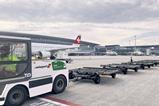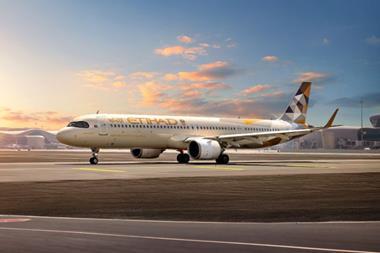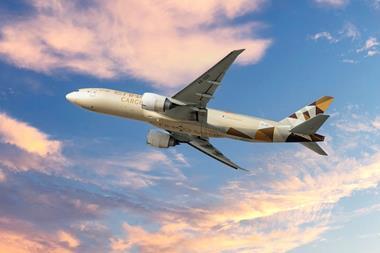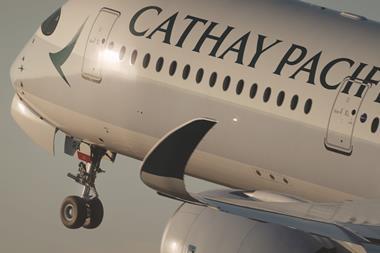Etihad Cargo has reported a 17% increase in volumes for the first half of this year following its efforts to cater for specialist verticals and increase its capacity.
Regionally, the Abu Dhabi-headquartered carrier said year on year volumes increased by 19% in the east, 20% in the west and 15% in the UAE.
This follows the recent release of Etihad Airways’ financial results, which showed year on year cargo revenue increased by approximately 10% in the first six months.
Stanislas Brun, vice president cargo, commented: "The carrier has strategically increased freighter and belly capacity to support regional growth and Etihad Cargo’s partners.
"Achieving double-digit tonnage growth is a testament to the team's dedication and the effectiveness of Etihad Cargo’s expansion strategies."
Etihad Cargo has continued to enhance its special product range, contributing to its growth. The carrier said its IATA CEIV Pharma-certified PharmaLife product had a 9% increase in tonnage, supported by the introduction of specialised cool dollies and breathable thermal blankets to minimise exposure to adverse environmental conditions outside temperature-controlled cool rooms.
SecureTech, launched in February, achieved a 95% increase in revenue. This product is dedicated to the safe and secure transportation of consumer electronics, addressing the increasing demand driven by new mobile phones and devices. Etihad has supported growth in this area with its IATA's CEIV Li-batt certification.
Adapting to the growing e-commerce market, Etihad Cargo has also implemented strategic initiatives, including dedicated charters for the express transportation of e-commerce goods.
To provide more capacity globally, the carrier's summer schedule introduced 24 passenger flights to new destinations including Antalya, Bali, Al-Qassim (Saudi Arabia), Jaipur, Malaga, Mykonos, Nice, and Santorini. It has also increased passenger flights to existing routes by 70 per week, bringing the total number of flights offering belly capacity to 865.
The carrier additionally launched a new freighter route to Madrid in July, served by two weekly Boeing 777 freighter flights, bringing it to a total of 36 weekly freighter-only flights, enhancing its European network and supporting e-commerce connectivity from Asia to Europe.
Partnerships have also continued to be a priority for Etihad Cargo to aid growth. The carrier expanded its global online and offline network, strengthening partnerships and increasing capacity, particularly in China, Southeast Asia, and North America.
To meet the increasing demand for capacity out of China, Etihad Cargo expanded its partnership with SF Airlines, increasing freighter frequency between Abu Dhabi and Ezhou and launching a new service between Shenzhen and Abu Dhabi. This collaboration boosts the partnership’s weekly capacity to 840 tonnes, enhancing connectivity between China, the UAE, and global destinations.
With the aim of enhancing customer experience and driving growth, Etihad Cargo also recently announced a major transformation of its organisational structure.
Etihad saw its cargo revenues in 2023 decline by 38% year on year to $914m following the “exceptional yield registered in 2022 due to Covid”.



























